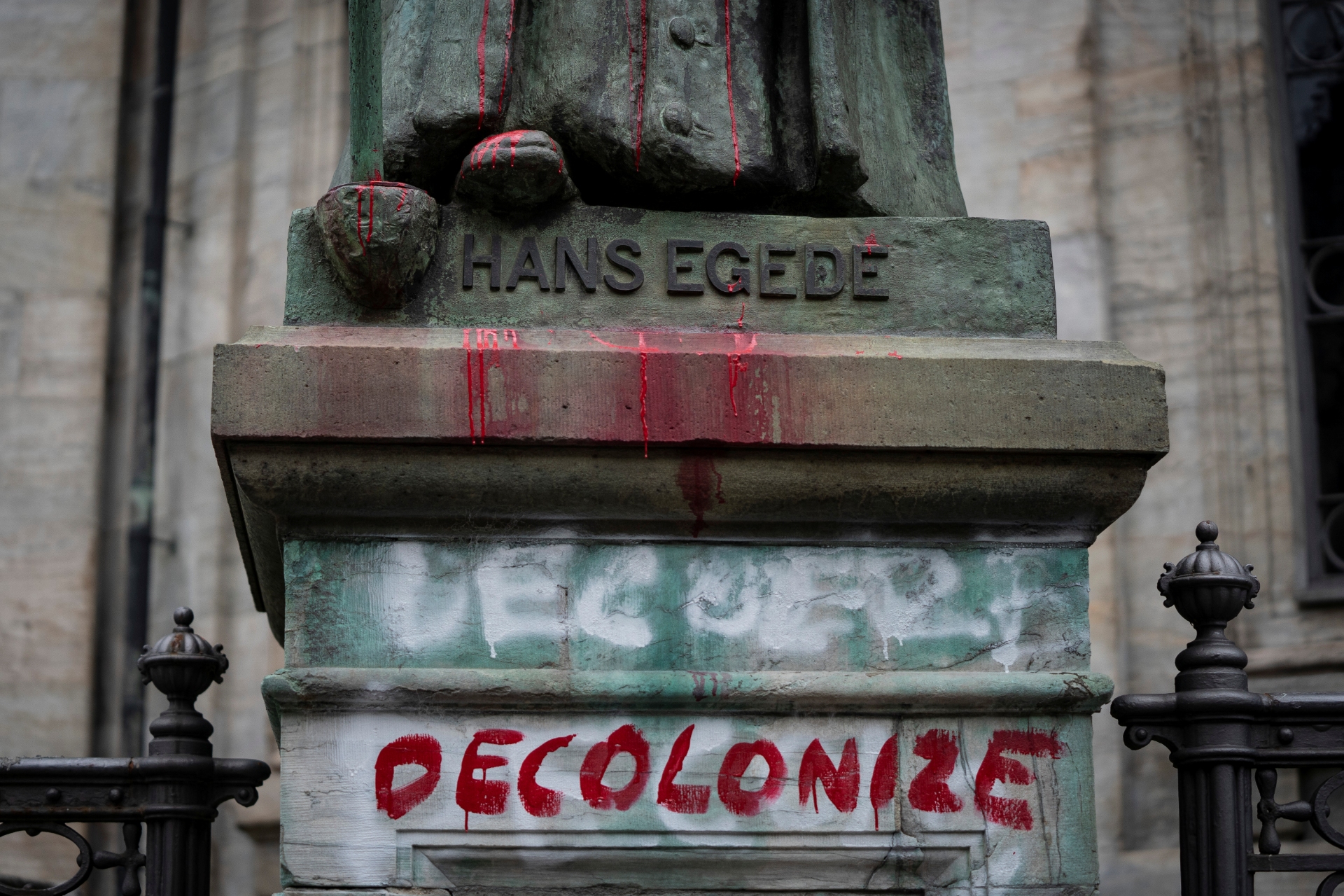Greenland’s youth question colonial past in wake of Black Lives Matter
The global Black Lives Matter movement has brought renewed recognition of racism and colonialism, elsewhere in the world, including in Greenland.

COPENHAGEN — In Greenland, 21-year-old hip-hop artist Josef Tarrak-Petrussen is the face of the local Black Lives Matter movement, and his music of anti-colonial protest is striking a deep chord with younger generations seeking to rewrite their history.
The Black Lives Matter protests, which have inspired people all over the world to expose and condemn injustice and past oppression, have revived long-standing tensions between Greenland and former colonial power Denmark and prompted calls for the removal of a statue of an 18th century colonizer.
[A statue in Greenland is marked with anti-colonial statements]
For a century, the figure of Danish-Norwegian colonist Hans Egede has towered over Greenland’s capital Nuuk. Some people say it is a symbol of Denmark’s superiority over Greenland.
“We should do as the rest of the world is doing and remove it, because it’s a part of the oppression here in Greenland and the systemic racism,” said Tarrak-Petrussen.
In a music video shot in front of the statue, he raps in Greenlandic how locals are labelled by Danes as “drunks”, “Eskimo pakis” and “Arctic monkeys”, and asks “Are we still a colonized people?”
Greenlandic lawmaker Aki-Matilde Hoegh-Dam called the statue a symbol of colonial violence and suggested putting it in a museum.
An online petition to remove the statue gathered nearly 2,000 signatures in one week, equivalent to more than a tenth of Nuuk’s population.
In an echo of protests elsewhere, “Decolonize” was scrawled on the statue and it was spattered with red paint on Greenland’s National Day, June 21.
Another statue of Egede in central Copenhagen was also targeted.
“The younger generations will no longer accept the way others have written their history – they want to start telling their own story,” Associate Professor of Cultural History at University of Greenland, Ebbe Volquardsen, told Reuters.
[Inuit Circumpolar Council backs Black Lives Matter movement]
Hans Egede, known as the Apostle of Greenland, was a missionary whose arrival there in 1721 marked the beginning of the colonial era. Volquardsen described the colonization as relatively unbloody, with no slavery or violent riots.
Nuuk’s mayor Charlotte Ludvigsen last week called for a public meeting to let citizens decide the fate of the statue.
“Much of the criticism of Hans Egede is that he forced Christianity and the Western way of life on Greenlanders,” she said.
Greenland remained a Danish colony until 1953, then became a formal part of the Kingdom of Denmark. It was granted broad self-governing autonomy in 2009, including the right to declare independence, but the island of 56,000 people is unlikely to do so anytime soon as it relies heavily on Denmark for economic aid.
Greenlanders enjoy the same welfare benefits as Danes, but many say their Greenlandic language and heritage limit their opportunities to get good schooling and jobs.


